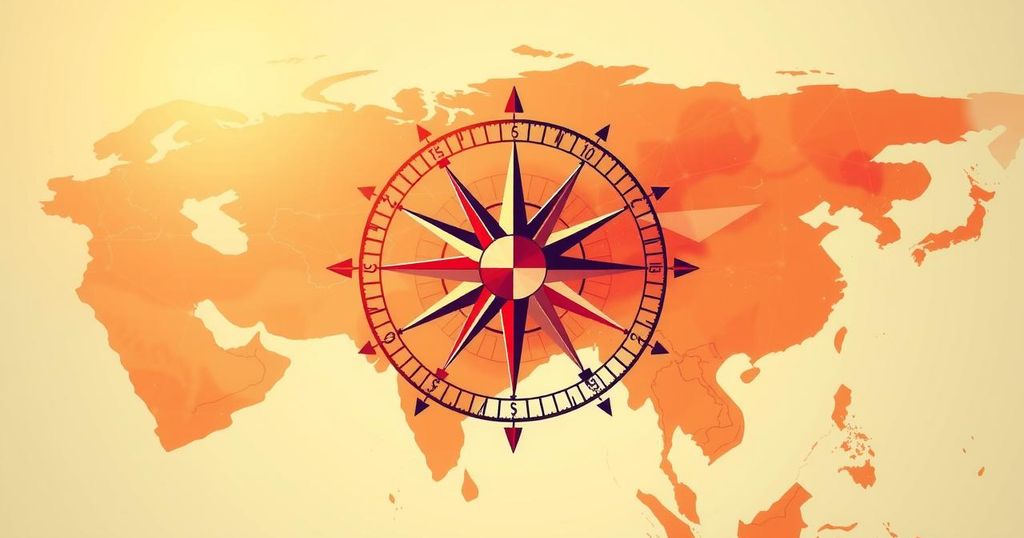The article critiques Elliott Abrams’ assessment of Iran’s influence in West Asia, arguing it oversimplifies regional dynamics and misrepresents local resistance movements. It highlights the impact of foreign interventions, calls for a reevaluation of Iran’s nuclear program narrative, and advocates for diplomatic engagement as essential for fostering stability in a changing geopolitical landscape.
The geopolitical landscape of West Asia is undergoing profound changes, reshaping traditional power dynamics and resulting in a shift towards new alliances. Elliott Abrams’ article in Foreign Affairs argues for a U.S.-Israeli offensive strategy aimed at countering Iran’s perceived influence. However, this perspective oversimplifies the complexities within the region and overlooks Iran’s historical alliances with groups such as Hezbollah and Hamas, which are rooted in local resistance rather than mere proxy warfare.
Abrams’ portrayal of these alliances fails to acknowledge their formation against foreign occupation and interference, reducing them to mere extensions of Iranian power. For instance, Hezbollah arose in response to Israeli occupation in the 1980s, and Hamas was established as a resistance movement against Israeli control in Palestine. These organizations represent a broader movement advocating national sovereignty and justice in the region.
A significant oversight in Abrams’ analysis is his neglect of the impact of foreign interventions on regional instability. U.S. military actions in Iraq, Afghanistan, and Syria have exacerbated tensions and undermined national sovereignty. While Abrams commends Israeli operations against groups like Hezbollah and Hamas, he neglects the stark power imbalance that often leads to civilian casualties resulting from U.S.-backed Israeli airstrikes.
Israel’s military strategies perpetuate violence and contribute to regional instability, especially with continued settlement expansion in the West Bank and the blockade of Gaza. Abrams’ support of such actions fails to address the historical context of Israeli aggression and the ongoing violation of international laws, including the severe humanitarian crisis faced by Palestinians in Gaza amid escalating conflicts.
In discussing Iran’s nuclear program, Abrams presents an exaggerated narrative of threat. Iran remains compliant with the Non-Proliferation Treaty (NPT) and collaborates with the International Atomic Energy Agency (IAEA). As there is no substantial evidence of Iran seeking nuclear weapons, it is essential to consider the broader geopolitical dynamics, including Israel’s undisclosed nuclear arsenal and its refusal to sign the NPT, which is often ignored in Western discourse.
Iran’s evolving partnerships with countries such as China and Russia signal its crucial role in the emerging multipolar world, diminishing the dominance historically held by the U.S. and Israel. This shift in dynamics necessitates a reevaluation of Iran’s significance in West Asia. As noted by Abrams, these partnerships are indicative of a transforming geopolitical landscape that may invoke apprehension within Western powers.
To foster stability in the region, the U.S. and its allies must adopt diplomatic engagement with Iran, instead of perpetuating confrontational policies that further diminish Western influence. Acknowledging Iran as a pivotal player in West Asia is imperative to navigate the complexities of this evolving geopolitical environment and ensure a more balanced global order.
The article addresses the shifting geopolitical dynamics in West Asia, particularly focusing on Iran’s influence in contemporary international relations. It critiques the oversimplification of Iran’s role and its regional alliances in Elliott Abrams’ analysis, highlighting the need to acknowledge local motivations for resistance movements. The discussion also emphasizes the consequences of foreign interventions and the implications of Iran’s nuclear program, arguing for a diplomatic approach in light of a changing multipolar power structure.
In conclusion, the analysis highlights the importance of recognizing the complexities and historical contexts that shape geopolitical alliances in West Asia. Iran’s role in the region is significant amid changing power dynamics, and it is essential for Western powers to engage in diplomacy rather than confrontation. Acknowledging regional actors and fostering partnerships may yield a more stable and balanced approach to addressing conflicts in West Asia.
Original Source: www.tehrantimes.com






